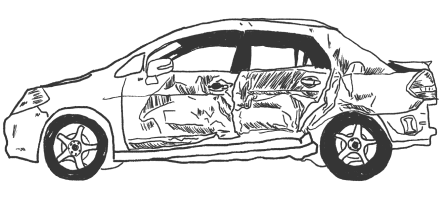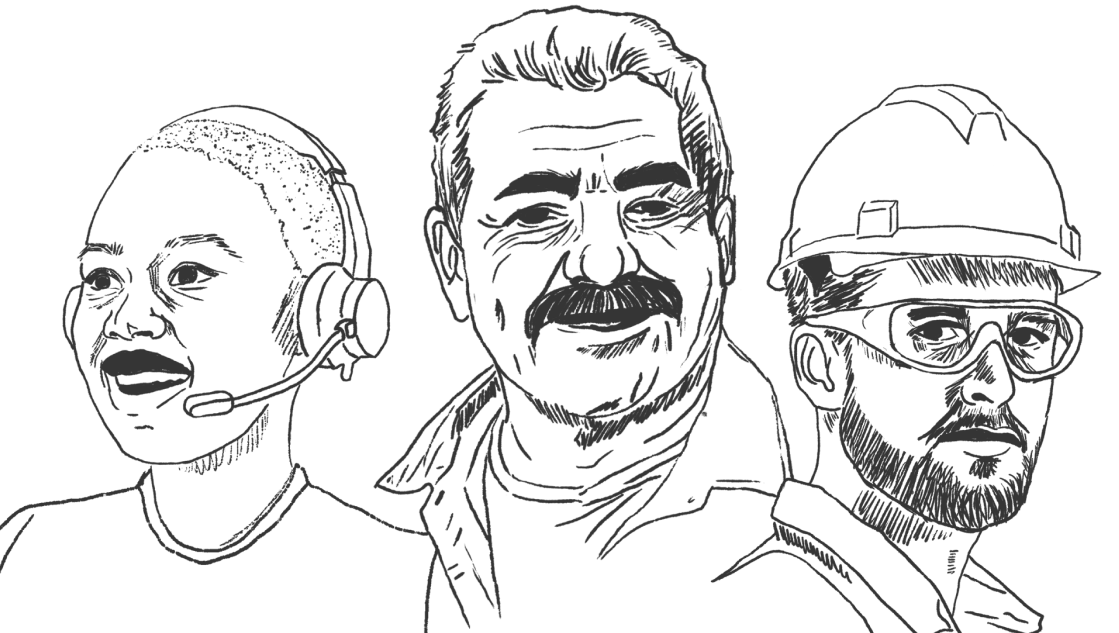Edinburg, Texas Drunk Driver Accidents: Civil vs. Criminal Cases After a Drunk Driving Accident
Edinburg stands as a critical hub in Hidalgo County’s thriving oil and gas industry. The city fuels the Eagle Ford Shale and Permian Basin through logistics, workforce housing, and equipment supply. U.S. Highway 281 and State Highway 107 serve as the main arteries for thousands of commercial trucks, hotshot rigs, service vans, and worker pickups traveling to and from drilling sites, refineries, fabrication yards, and pipeline projects. This 24/7 industrial activity drives economic prosperity. It also creates high-risk roadways, especially after dark. Texas Department of Transportation (TxDOT) data reveals that impaired driving accounts for over 25 percent of all fatal crashes statewide. In the Rio Grande Valley, the danger intensifies during shift changes. Oilfield workers complete grueling 12-to-16-hour hitches and either head to local bars to unwind or consume alcohol on-site to cope with the stress. A single impaired driver can shatter lives in an instant. Hidalgo County recorded 42 DUI-related fatalities in 2024 alone, with many occurring on rural FM roads and major highways surrounding Edinburg.
Drunk driving accidents trigger two distinct legal processes that operate independently but can influence each other. The state initiates the criminal case to punish the offender and deter future violations. The civil case, which is the focus of our work at A2X, is pursued by the victim to secure financial compensation for medical bills, lost income, pain and suffering, and other damages. While the criminal system may send the drunk driver to jail, it rarely provides meaningful financial relief to the injured or their families. That is where the civil lawsuit becomes essential. At A2X, we specialize in civil drunk driving cases. We fight aggressively to hold the at-fault driver, their employer, insurance companies, and even bars accountable so that victims receive the full compensation they need to rebuild their lives. Contact us today for a consultation at www.a2xlaw.com. We work on a contingency basis, no recovery means no fee.
The Criminal Case: The State’s Pursuit of Punishment
The criminal case begins immediately after the crash when Edinburg police, Hidalgo County sheriff’s deputies, or Texas Department of Public Safety troopers respond to the scene. If the officer detects signs of intoxication, slurred speech, odor of alcohol, failed field sobriety tests, or an open container, they arrest the driver under Texas Penal Code §49.04 for Driving While Intoxicated (DWI). A first-time offense with a blood alcohol concentration (BAC) between 0.08 and 0.15 is classified as a Class B misdemeanor, carrying penalties of up to 180 days in jail, fines up to $2,000, and a one-year license suspension. If the BAC exceeds 0.15, the charge escalates to a Class A misdemeanor with up to one year in jail and fines up to $4,000. Repeat offenders or those who cause serious bodily injury face felony charges under §49.07 (Intoxication Assault) or §49.08 (Intoxication Manslaughter), with prison terms ranging from 2 to 20 years and fines up to $10,000.
The criminal case is prosecuted by the Hidalgo County District Attorney’s office. The victim and family do not take an active role in the case. They have been called only to be witnesses. The purpose of the state is punishment and protection of the public, not compensation. Consequences include prison, probation, alcohol education programs, an ignition interlock, and community service. Criminal restitution, when ordered, is often a fraction of actual damages and difficult to collect from an incarcerated defendant.
The Civil Case: Your Path to Financial Recovery
The injured or deceased individual's claims are distinct from the civil case and are initiated at the victim's discretion. We file the personal injury or wrongful death lawsuit on your behalf against the drunk driver and any other liable party. The Texas Civil Practice and Remedies Code, Chapter 41, applies to these claims. The civil system operates on a lower burden of proof, preponderance of the evidence (more likely than not), rather than beyond a reasonable doubt. A criminal conviction for DWI establishes negligence per se, meaning the driver’s violation of the law automatically satisfies the duty and breach elements of negligence. This allows us to focus on proving the full extent of your damages.
Compensating a victim in a civil drunk driving case can be life-altering. The victim is entitled to economic damages, including, but not limited to, past and future medical expenses, rehabilitation costs, lost wages and income, and property damage. The victim is also entitled to receive damages to account for non-economic damages, including physical pain, mental anguish, disfigurement, and loss of enjoyment of life. In Edinburg, Texas, in 2024, we recovered $14 million in a verdict on a case where a young father was paralyzed after a drunk oilfield supervisor collided with him at 70 mph (T-boned) in his vehicle. The oilfield supervisor served two years in prison. Still, the civil award provided the father with his long-term medical expenses, home modifications, and services to support his family. If not for the civil award, he would be left destitute.
Key Differences Between Criminal and Civil Proceedings
The criminal and civil systems serve distinct purposes and follow different rules. In the criminal case, the state is the plaintiff, and the defendant faces loss of liberty. The high burden of proof protects the accused from wrongful conviction. Victims have no control over charges, plea deals, or sentencing. Outcomes benefit society through deterrence, but rarely help the injured party financially.
In contrast, the civil case places you at the center. You will present your case as the plaintiff, while we handle strategy, discovery, and settlement negotiations. With a lower burden of proof, you can attain victory. A civil case can prevail even if the sentence is not guilty in a criminal trial due to a procedural defect or the prosecution failing to meet the burden of proof. A criminal trial can actually strengthen a civil claim. A guilty plea or conviction provides irrefutable evidence of liability. We obtain police reports, BAC results, dashcam footage, and witness statements from the criminal file to build an ironclad civil case. In Edinburg, where oilfield workers often have prior DWIs, criminal records expose patterns of recklessness that justify punitive damages.
Who Pays in a Civil Drunk Driving Lawsuit?
The drunk driver is the primary defendant, but most lack significant assets. Texas mandates minimum auto insurance of $30,000 per person/$60,000 per accident for bodily injury. Many oilfield workers carry higher limits or umbrella policies worth $1 million or more. We exhaust the driver’s coverage first.
Employer liability expands the recovery pool. If the driver was on the clock, returning from a job, or using a company vehicle, the employer may be vicariously liable under respondeat superior. Oilfield companies often have commercial policies with limits of $5 million to $10 million. We also pursue dram shop liability under Texas Alcoholic Beverage Code §2.02. Bars, restaurants, or convenience stores that overserve visibly intoxicated patrons face joint responsibility. In a 2025 Edinburg case, a local cantina served 12 beers to a pumper who later killed a family of four on SH-107. We secured an $18 million settlement, $6 million from the bar’s liquor liability policy, and $12 million from the driver’s employer and personal umbrella.
Punitive Damages: Sending a Message Beyond Compensation
Texas law allows exemplary (punitive) damages when the defendant acts with gross negligence or malice. Drunk driving easily meets this standard. Texas Civil Practice and Remedies Code §41.003 caps punitive awards at the greater of $200,000 or twice economic damages plus up to $750,000 in non-economic damages. Juries in Hidalgo County have exhibited a willingness to penalize repeat offenders and their enablers. In one case in 2024, a DWI driver with a previous history of three DWIs was involved in a fiery collision on FM 490. The jury awarded 5 million dollars in punitive damages against the driver and $3 million against his employer for negligent retention. These punitive awards will send a message to deter future misconduct, hold perpetrators accountable, and, importantly, put dollars in victims' hands.
Immediate Actions to Protect Your Civil Claim After a Drunk Driving Crash
Collecting evidence is crucial. Make sure to call 911 and request a thorough DUI investigation. This should include field sobriety tests, a breathalyzer, and a blood draw. If you experienced any pain, request EMS transport to the hospital. Symptoms upon injury are often delayed; however, traumatic brain injuries and internal bleeding could all manifest later. Take photos of the scene before any vehicle is towed. Be sure to photograph any relevant evidence: open containers and spilled alcohol, tire skid marks, and even the patterns of damage of any involved vehicle. Get a copy of the police report as soon as possible; this is your first opportunity to document the officer's observations regarding impairment. Get contact information for any witnesses, as oilfield coworkers will likely be leaving quickly. Do not speak with insurance claims adjusters without legal counsel; they are taking statements to reduce what they may pay you on claims you file. Lastly, consultations should occur within 24 hours of the crash; this gives us time to issue spoliation letters to preserve any dashcam footage, black box data, or any bar surveillance footage. We have a two-year statute of limitations for any claims under Texas Civil Practice and Remedies Code § 16.003; this statute ensures you move quickly to protect your legal rights.
Contact A2X Today
Drunk drivers on Edinburg roads destroy futures in the blink of an eye. Criminal courts may send them to jail; however, the only civil lawsuit can provide the financial resources you need to heal and recover. At A2X, we turn tragic events into justice. We evaluate every angle, preserve vital evidence, and demand the highest compensation possible from all liable parties. Schedule your consultation today at www.a2xlaw.com. Let us carry the legal burden while you focus on recovery and family. With A2X, your voice will be heard, and your future secured. A2X: Anyone. Anytime. Anywhere.

Request a Consultation
Other Practice Areas




